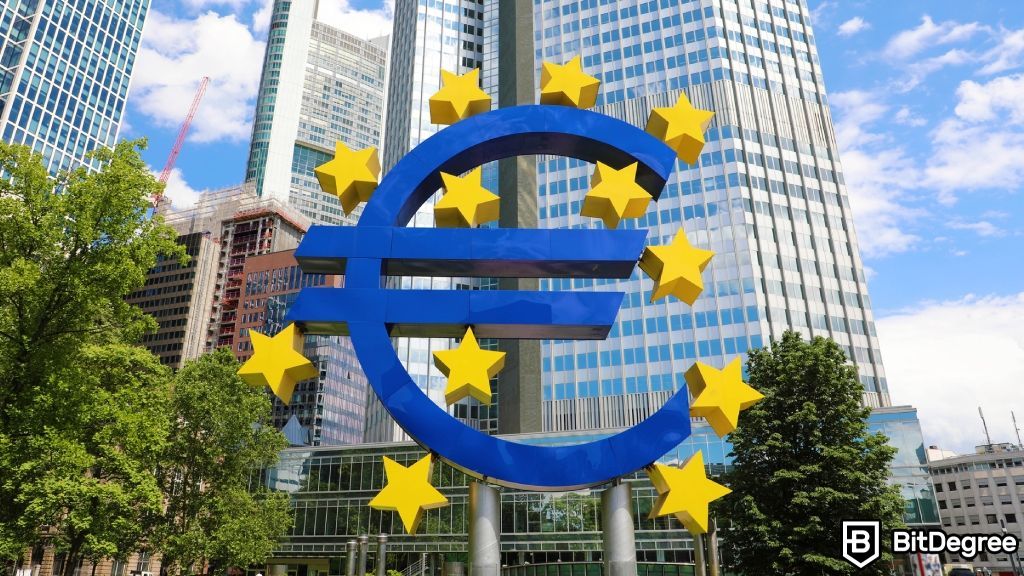[ad_1]
Key Takeaways
- The ECB remains skeptical about the safety and validity of Bitcoin investments, even after the SEC approves spot Bitcoin ETFs in the U.S.
- ECB officials argue that Bitcoin’s value is fundamentally zero, highlighting its speculative nature and potential for causing social and environmental harm.
- The ECB emphasizes the need for regulatory vigilance to protect against the risks associated with Bitcoin, including its potential impact on the financial system and the environment.
The European Central Bank (ECB) has voiced its concerns over the approval of spot Bitcoin exchange-traded funds (ETFs) in the United States, reaffirming its negative view on Bitcoin despite a surge in market optimism.
This stance was articulated through a blog post by Ulrich Bindseil, Director General of Market Infrastructure and Payments at the ECB, and Jürgen Schaaf, advisor to the Senior Management of the same division.

Did you know?
Want to get smarter & wealthier with crypto?
Subscribe – We publish new crypto explainer videos every week!
The ECB officials emphasize the potential for a boom-bust cycle of Bitcoin that could have detrimental societal impacts, such as environmental damages or the risk of an ultimate wealth redistribution at the disadvantage of the less informed.
They criticize the speculative nature of Bitcoin’s valuation, attributing it to the cryptocurrency lobby’s influence rather than genuine market validation.
Building on a previous 2022 blog post, they comment on Bitcoin’s failure to emerge as a decentralized global currency and its ineffectiveness as an investment option, stating:
Bitcoin is still not suitable as an investment. It does not generate any cash flow (unlike real estate) or dividends (stocks), cannot be used productively (commodities), and offers no social benefit (gold jewellery) or subjective appreciation based on outstanding abilities (works of art).
Despite acknowledging the ETF approvals’ role in Bitcoin’s price surge, the officials warn against interpreting this as a sustainable trend, labeling it a potentially short-lived phenomenon.
The ECB underscores the importance of regulatory vigilance to safeguard against the risks associated with Bitcoin, including money laundering, cybercrime, and financial losses.
ECB leaders highlight the speculative risks and societal concerns associated with Bitcoin, advocating for continuous regulatory oversight to ensure financial stability and protect against the potential downsides of digital currencies.
This call for ongoing scrutiny coincides with discussions around the digital euro and concerns over its potential to destabilize the banking sector.
Having completed a Master’s degree on Economics, Politics & Culture for the East Asia region, Aaron has written scientific papers with a comparative analysis of the differences between US’ Western and Japan’s Collective forms of capitalism, 1945-2020.
With close to a decade of experience in the FinTech industry, Aaron understands all of the biggest issues and struggles that crypto enthusiasts face. He’s a passionate analyst who is concerned with data-driven and fact-based content, as well as that which speaks to both Web3 natives and industry newcomers.
Aaron is the go-to person for everything and anything related to digital currencies. With a huge passion for blockchain & Web3 education, Aaron strives to transform the space as we know it, and make it more approachable to complete beginners.
Aaron has been quoted by multiple established outlets, and is a published author himself. Even during his free time, he enjoys researching the market trends, and looking for the next supernova.
[ad_2]
Source link






